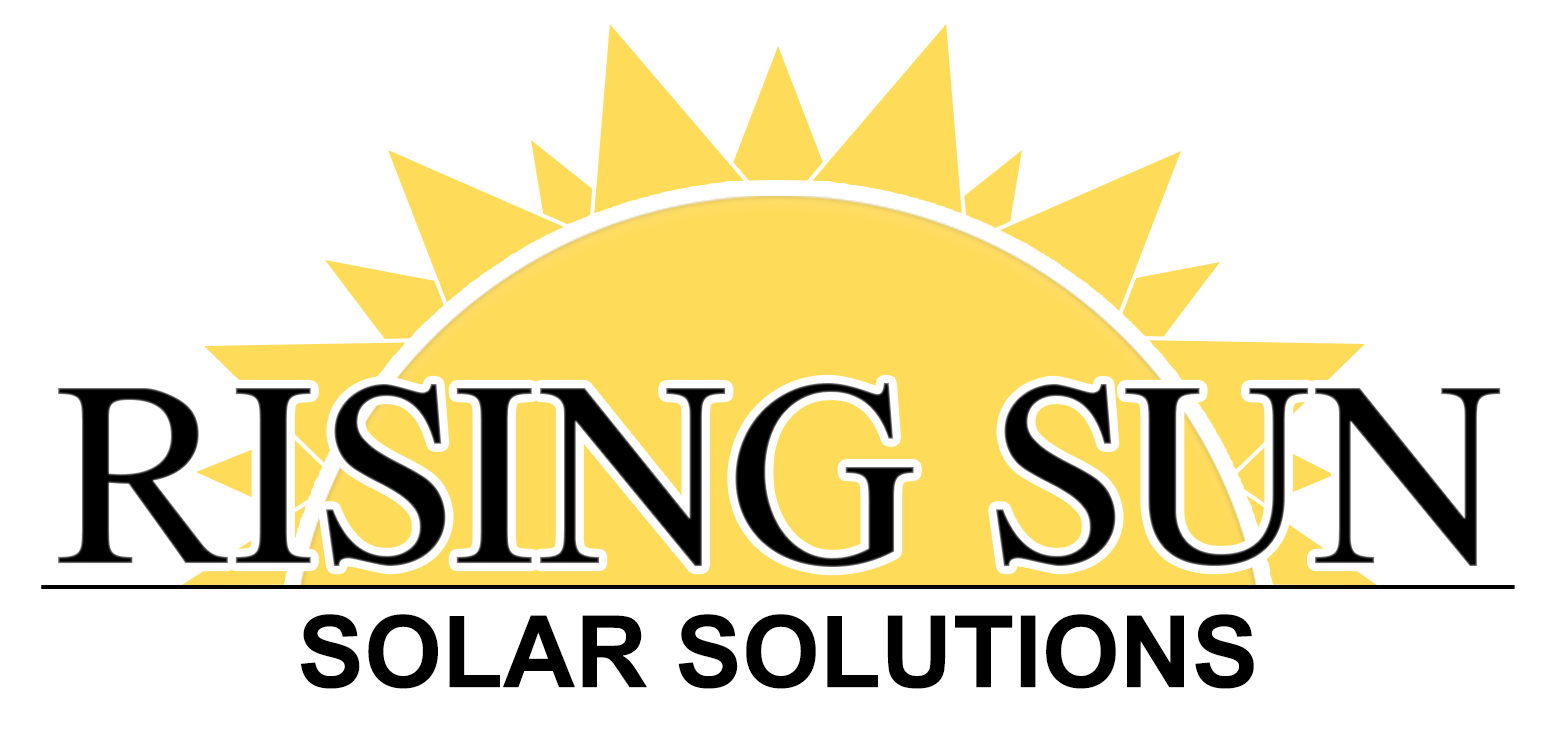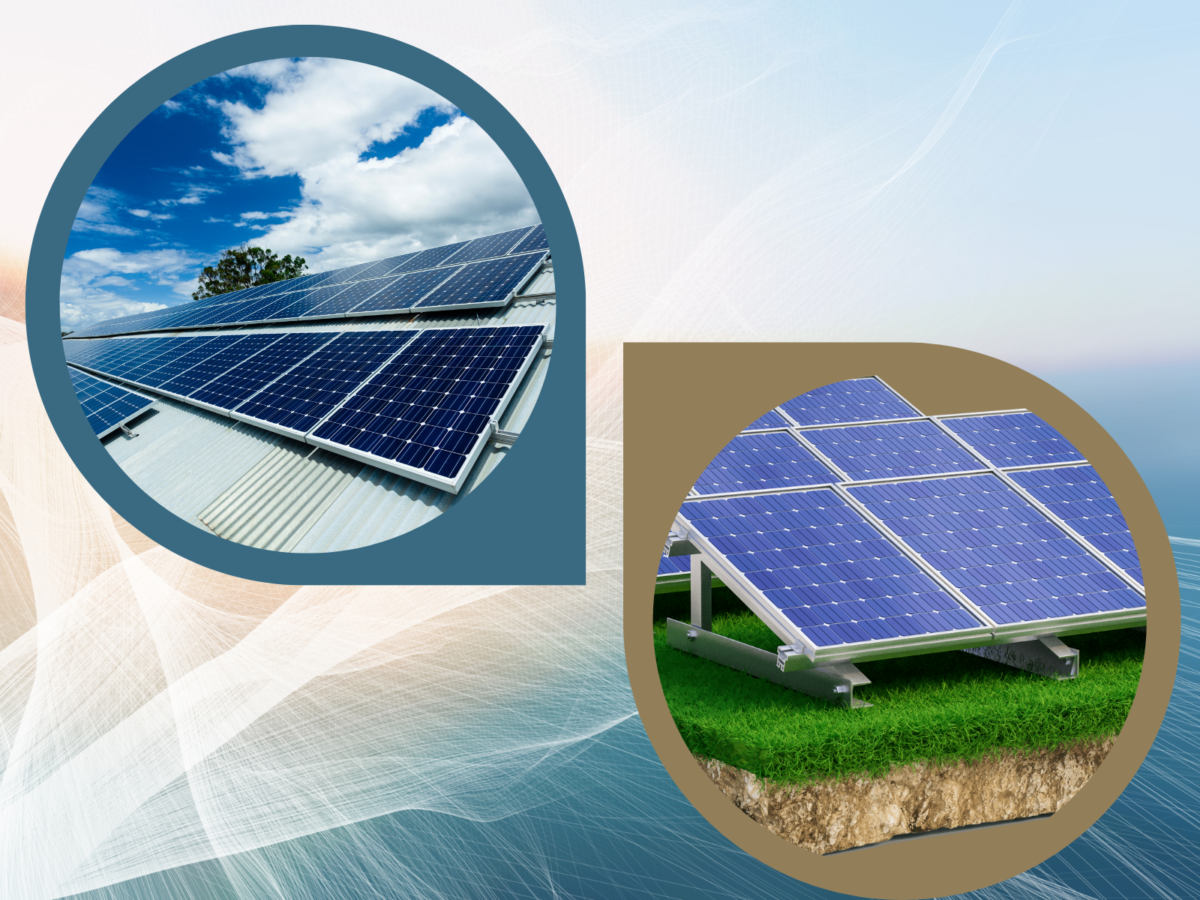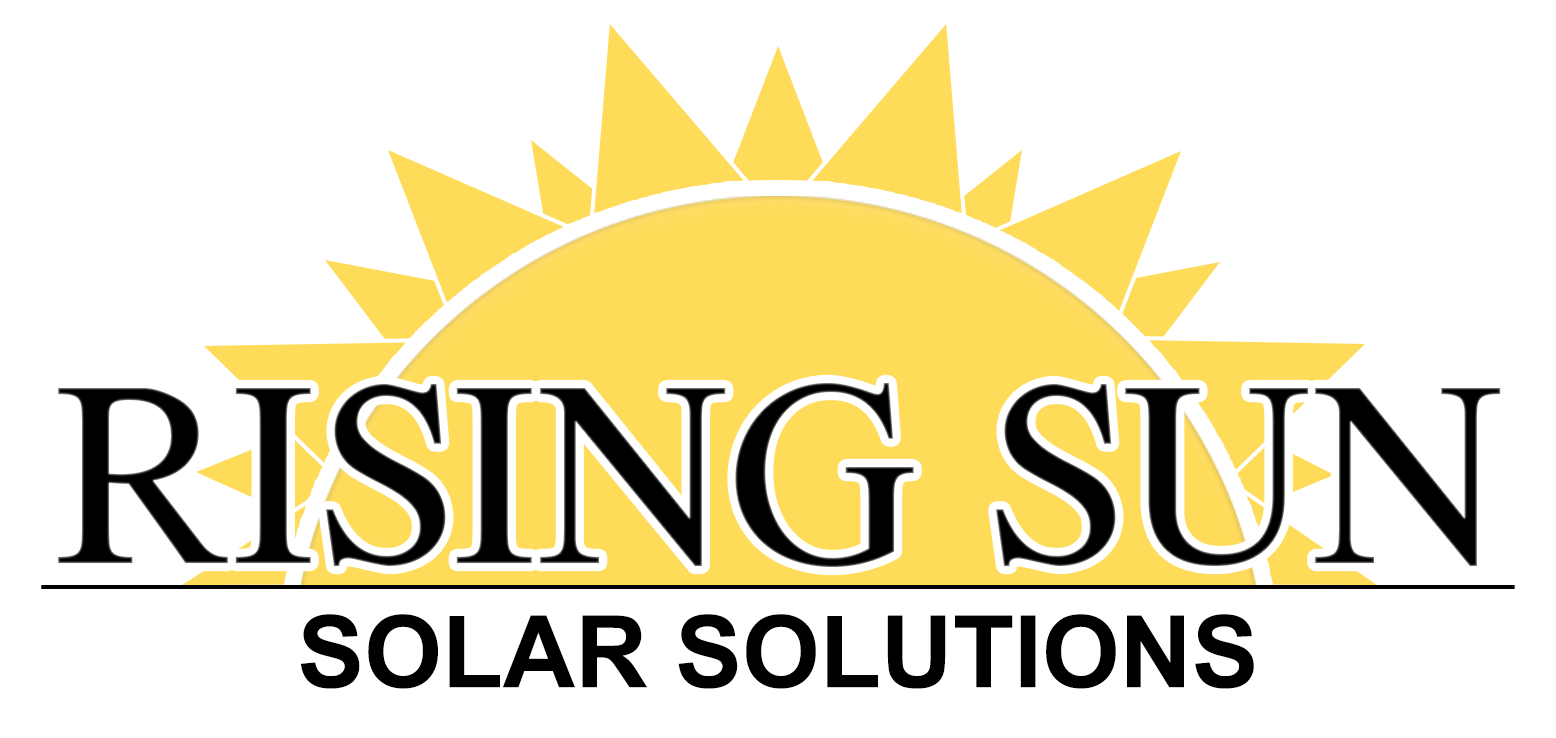You’ve probably seen rooftop solar panel installation on a neighbor’s roof or passed by a solar unit next to an office building while driving. And you might be wondering what this might look on your home or office.
The truth is that every solar unit looks different because it accommodates all kinds of structures. However, there is one major decision that affects all solar setups: choosing between solar roof panels or ground-mounted solar panels.
Both options have their advantages and drawbacks, and understanding the differences between them can help you make an informed choice.
Benefits: Rooftop Solar Panel Installation
Your first option is solar on roofs, which includes either slanted or flat roof-mounted solar panels. Both kinds of roofs allow for solar panel installation with some customization.
At Rising Sun Solar Solutions, your roof is evaluated to provide you with a customized solar unit setup. This lets your solar panels operate at their highest efficiency by having these solar panel roof benefits:
Space Efficiency
One of the primary advantages of rooftop solar panel installations is space efficiency. Rooftops are often underutilized spaces, and installing solar panels on your roof can help you maximize the use of this area. This is especially beneficial if you have limited ground space available for solar panel placement.
Aesthetics
Rooftop solar panels are typically less visible from ground level, making them a preferred choice for those who want to maintain the aesthetic appeal of their property. They blend in with the architecture of your home or business, and their installation does not significantly alter the appearance of your property, unlike ground-mounted solar panel residential units.
Energy Production
Rooftop solar panels are strategically positioned to capture the maximum amount of sunlight throughout the day, which can lead to higher energy production compared to ground-mounted panels. Additionally, the elevation can help reduce shading, maximizing efficiency.
Cost Savings
One of the biggest considerations before installing solar is the price. Rooftop solar panel installations can be more cost effective as they utilize existing structures, reducing the need for additional support or construction work. In some cases, you may also benefit from reduced cooling costs as the panels provide shade to your roof.
Faster Installation
Installing solar panels on your roof is generally quicker than setting up ground-mounted panels. Rooftop installations require fewer permits, inspections, and construction work, resulting in a shorter installation timeline.
Benefits: Ground-Mounted Solar Panels
Whether you live in a townhouse with limited roof space, an apartment, or rented office building, grout-mounted solar panels will work for you when solar roof installation will not.
You have two options for ground-mounted solar, which includes installing the panels on your property or using a community solar farm. Either way, you will enjoy the following benefits of this type of solar.
Flexibility of Placement
Ground-mounted solar panels offer more flexibility in terms of placement and orientation. You can install them at the optimal angle and direction to maximize sun exposure, which may not always be possible on a rooftop.
Maintenance Accessibility
Maintenance and cleaning of ground-mounted panels are typically easier and safer than rooftop panels. You don’t have to worry about climbing onto your roof or navigating around obstacles.
Ability to Add More Panels
In some locations with large amounts of space, you can add extra ground-mounted solar panels. This means that you aren’t limited to how much solar power you can generate. Unlike roof-mounted solar, you have a better chance of offsetting your utility bill by 100%, especially if you use a lot of electricity.
Scalability
If you have a large property or want to expand your solar panel system in the future, ground-mounted panels offer more scalability. You can add more panels as needed without the constraints of roof space.
Longevity
Ground-mounted solar panel systems often have a longer lifespan because they are less exposed to extreme temperature fluctuations and weather conditions that can affect roof-mounted panels. For example, solar panel installation in Maryland withstands everything, from hot humid summers to winter blizzards. It is harder to protect your panels from harsh conditions like piles of snow when they sit on the roof.
Key Take-A-Ways
The decision between rooftop solar panel installation and ground-mounted solar panels ultimately depends on your specific property, energy usage, and expansion plans. Consider the following factors when making your choice:
Space Availability: If you have limited roof space but ample land, ground-mounted panels may be the better option.
Roof Condition: Your roof has to be in pristine condition and be able to withstand the weight of solar panel installation. That is why at Rising Sun, we conduct an inspection before installing solar on roofs.
Aesthetic Concerns: If preserving the appearance of your property’s land is a top priority, rooftop panels are a more discreet choice.
Budget Restraints: Rooftop installations are generally more budget-friendly, while ground-mounted systems may require additional construction costs.
Energy Needs: Assess your energy needs and location-specific factors, such as shading, to determine which option will provide the most energy efficiency.
Long-Term Goals: Consider whether you plan to expand your solar panel system in the future, as this can influence your decision.
Getting Help With Your Decision
Both rooftop solar panel installation and ground-mounted solar panels offer unique advantages and challenges. Your choice largely depends on the condition and structure of your property. This is why you should always consult a professional at Rising Sun Solar Solars before making any purchase.
Start by contacting us today to schedule a visit to your home or office, and we will be happy to discuss all of your solar installation options.


